Weight training for women: your complete guide to getting strong from home
Building strength is *so* crucial if you have health, fitness or aesthetic goals
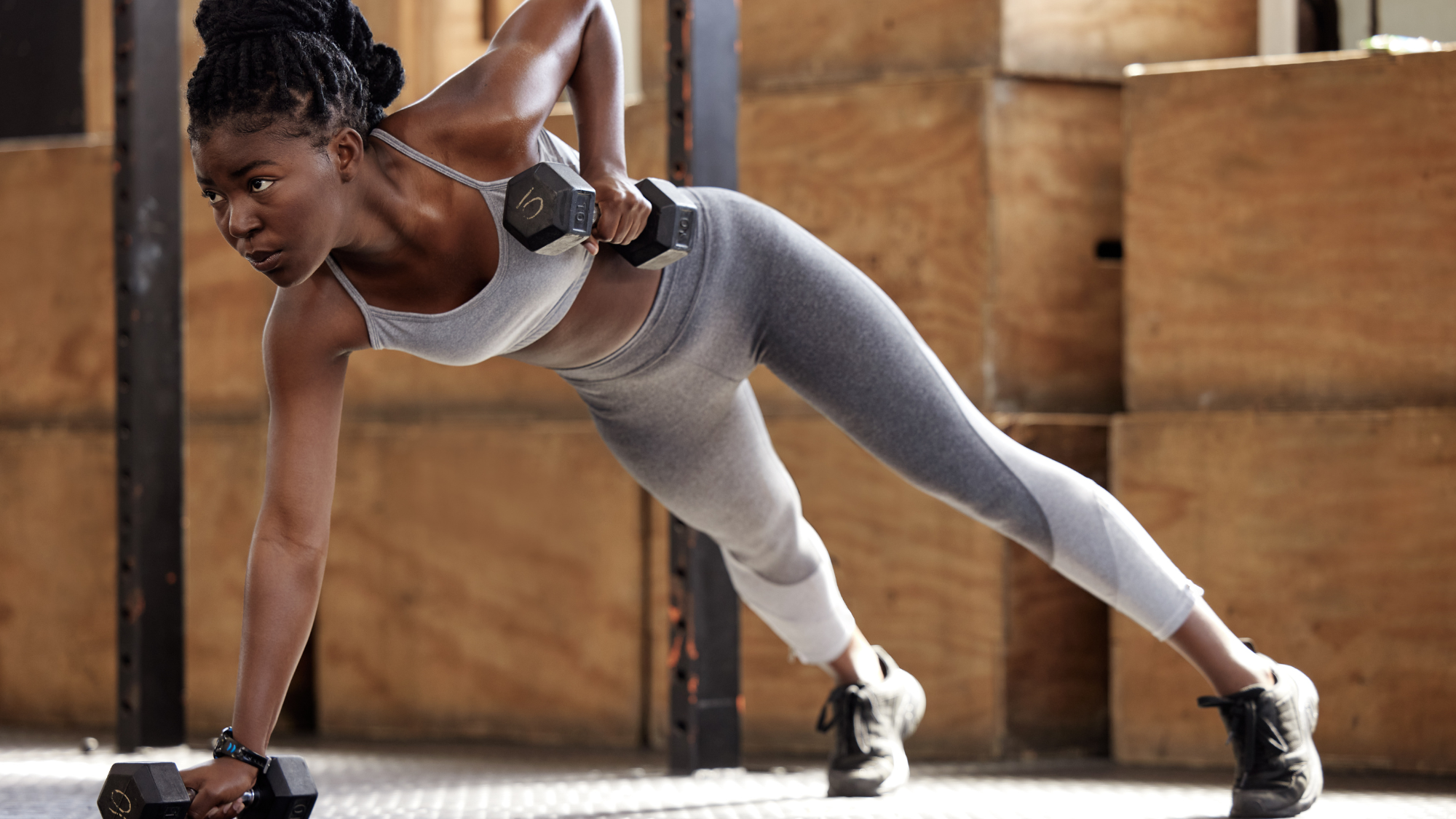
Keen to try weight training for women but not sure where to start?
We've bought you guides to the best glute exercises, ab exercises, dumbbell exercises and kettlebell exercises - next up, a guide to how weight training could change your life.
Historically, weight training for women has been sidelined in favour of more cardio-focused training, like running and HIIT training - but no longer. The age-old myth that women shouldn't lift weights is now thankfully long gone, with social media helping to encourage more women to try their hand in the weight room.
It's about so much more than just showing off how much you can lift in an Instagram reel though - experts have long been shouting about the benefits of weight training. In 1998, researchers wrote that strength training improves bone and tissue function, increased muscle mass, decreased fat and enhanced self-confidence in women. Then, in 2017, a review from the German Sport University in Cologne concluded that strength training improved physical performance and reduced pain in women.
Basically, weight training is key for living happy, healthy, and pain-free. A whole roster of famous celebrities swear by strength training, including Khloe Kardashian, Megan Fox, and Emma Stone (check out our guide to celebrity workouts, here).
"The myth of weight lifting being solely for men is a thing of the past," explains Kate Maxey, strength and conditioning master trainer at London-based gym Third Space. "The rise in weight training at home for ladies - and in the gym - in recent years has been huge. Women are now more focussed on achieving strong and athletic bodies, and training in a way that makes them feel their best," she explains.
But that shake-up hasn't quite reached every woman. In 2020, a study from Penn State University found that women are still more likely to feel uncomfortable using recreation facilities - particularly weights.
Marie Claire Newsletter
Celebrity news, beauty, fashion advice, and fascinating features, delivered straight to your inbox!
Firstly, everyone deserves to take up space in the gym. It's that simple. But if you want to build confidence at home before transitioning to public weight rooms, we've got you. Dumbbells at the ready, and don't miss our guides to how much weight should you start lifting and overcoming gym anxiety, while you're here.
Not so keen on weight training? Resistance band exercises and body weight exercises are great alternatives.
Your complete guide to weight training for women:
What is weight training?
If you've never strength trained before, the thought of lifting weights or pressing your body around can feel a little overwhelming. But we're here to break it down slowly - answering questions like what actually is strength training? What does the term mean? And where do you start with strength training if you've never done it before?
Weight training, in its simplest form, is any workout that will improve muscle strength by working against resistance.
It can take many forms, but most commonly comes in the form of weighted compound moves like, deadlifts, squats, and lunges. Not got any weights at home? You can do bodyweight or resistance band strength sessions, too, but because weights put your muscles under further resistance they are a great way to get more bang for your strength-training buck.
"You can use any weighted equipment, like dumbbells, kettlebells, barbells and resistance weight machine, to build muscle and improve your strength," explains personal trainer Lillie Bleasdale of PASSA.
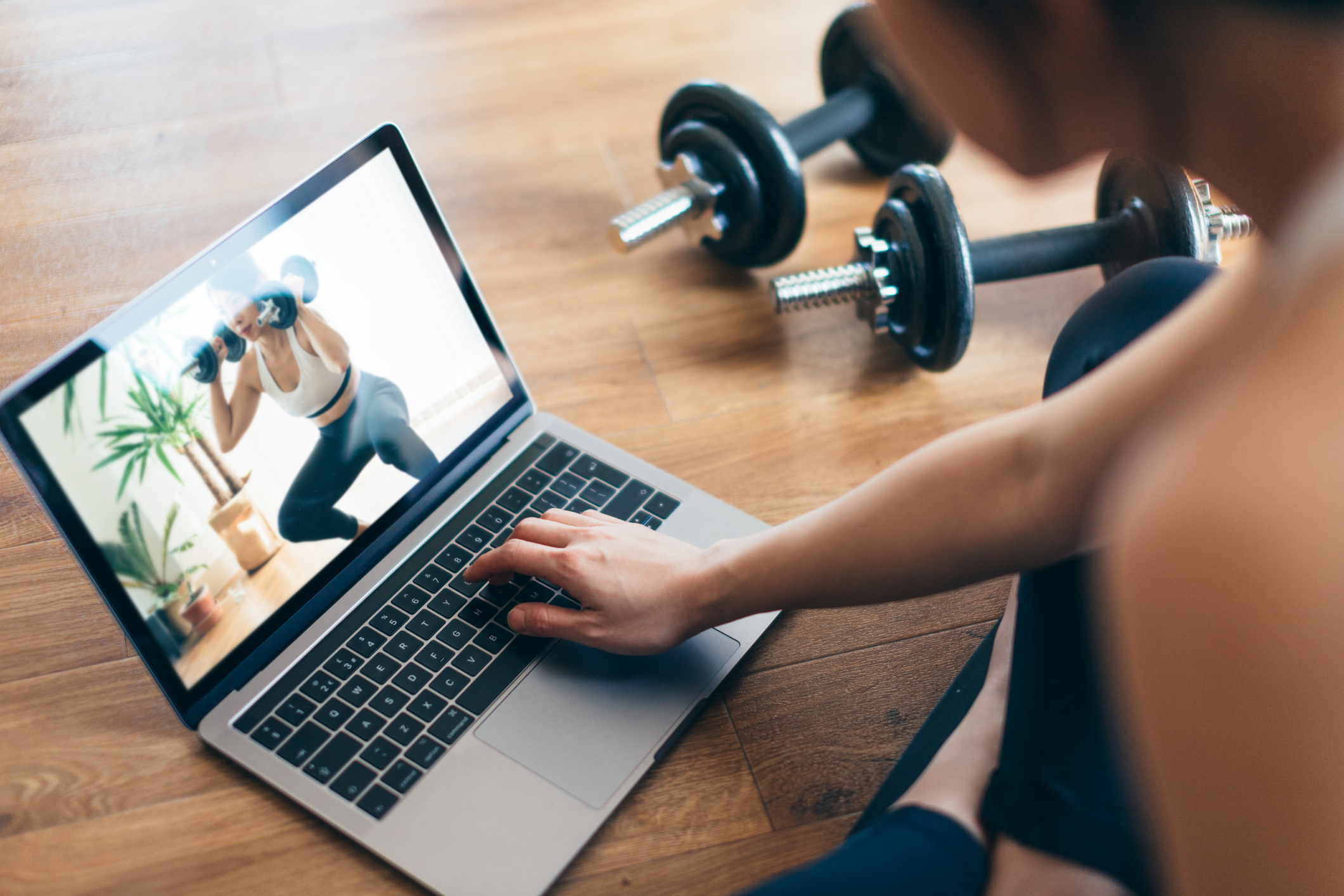
Will weight training make me bulky?
Ah, that age-old question. Worried you might get too muscley? That's a common misconception about weight training and actually, quite a harmful myth that's held many women back over the years.
A quick note that whatever your body looks like, you have a good body. Not only does a fear of bulk keep women from reaping the benefits of strength training but it only further shames women who do have muscle.
However, muscley women are usually athletes who have trained exceptionally hard to build their bodies. Rest assured that there is no scientific evidence to show that strength training as a recreational exerciser with a balanced diet will make you 'bulk' up.
Rather, the current research shows that strength training will increase your bone strength, improve your joint function, reduce your risk of injury, increase your metabolism, and increase your muscle mass.
"Lifting weights can be one of the most effective ways to reduce body fat and increase muscle mass, creating a lean physique rather than one of a bodybuilder," explains Maxey. "Focus on eating a healthy, balanced diet, and ensure resistance training is included within your workout," she advises.
So, trust us - and our two qualified PT's - when we say you should be excited by the changes strength training can bring about in your body, rather than worried about them.
What are the most common weight training exercises?
Weight training can be low impact (as there's no jumping around) but it offers rewarding results, according to Maxey. You'll feel a slow, steady burn as you work the different muscle groups.
According to Bleasdale, the following moves are some of the most common strength training exercises you could include in a workout:
- Deadlifts
- Squats
- Lunges
- Glute bridges
- Bent over row
- Bicep curls
- Overhead tricep extensions
- Cable machine rows
So, you know what moves make up weight training... but how do you formulate that into a workout? Good question. To begin with, trying one of these free home workouts or no kit workouts is a good starting point. There, you can pick a strength workout and follow along as a PT does it, too. Don't worry if you get a little gym anxiety - that's totally normal.
How you choose to structure your strength training is up to you - there are hundreds of ways you could do it. If you're programming your own workouts, a common method is to focus on your sets and reps. Try five to seven sets for strength-focused workouts, and eight to twelve reps for a muscle building focus, of each movement, and do this three to four times through. That'd look like this:
Rep one: Squats: 8 to 12 reps Rep two: Row: 8 to 12 reps Rep three: Glute bridge: 8 to 12 reps Rep four: Bicep curl: 8 to 12 reps Rep five: Lunge: 8 to 12 reps
Beginners, start light and work your way up as you don't want to injure yourself.
A great tip for finding the perfect weight is that you want your last one or two reps to feel tricky - like if you did any more you'd end up sacrificing your perfect form. If you think you could do another five reps with no trouble, you probably need to go heavier.
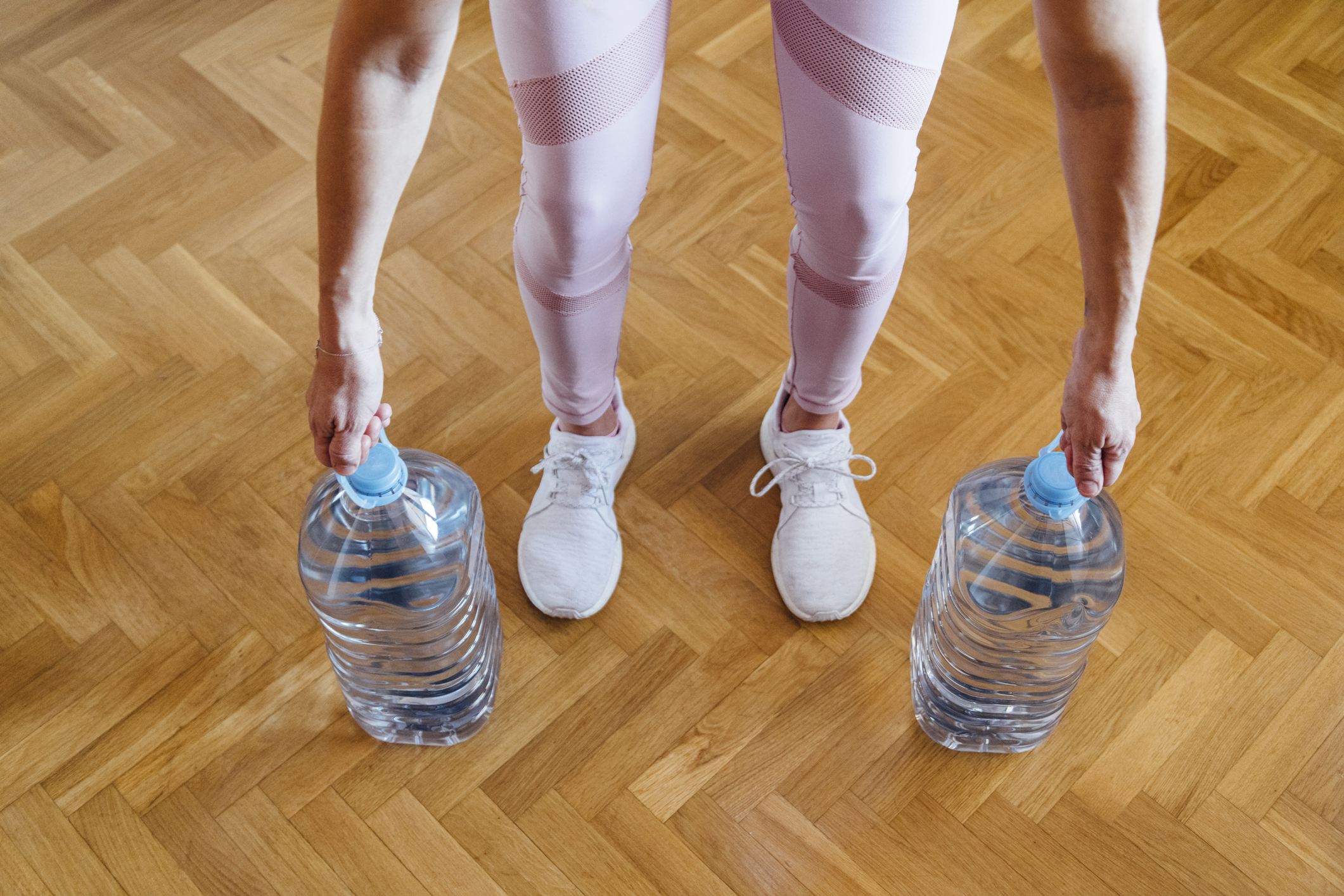
What are the benefits of weight training?
We've covered loads above, but there really are a whole lot.
"The Chief Medical Officers’ Physical Activity Guidelines statement quotes; 'If physical activity were a drug, we would refer to it as a miracle cure, due to the illnesses it can prevent and help treat,'" shares Bleasdale.
Weight training specifically improves your strength, power, flexibility, speed, and neuromuscular control. Not to mention increased cardiovascular efficiency, decreased body fat, and increased metabolic efficiency.
"Basically, you'll experience an overall improvement in general health and wellbeing," the PT shares.
Are there any cons of weight training?
As with any workout, if you're not practicing the correct form, you'll increase your risk of injury, so do make sure to check out the 100's of form tutorials on YouTube if you're unsure. It's as simple as typing in the move you want to perfect and 'tutorial' on YouTube.
Bleasdale recommends booking an induction with a professional. "In the gym, these are usually free of charge and a gym instructor will take you around all equipment and explain how to use it; this is your chance to ask any questions and I’d urge you to use it. Try out the exercise, get the instructor to check that you’re doing it correctly, what needs to be changed?," she recommends.
Sure, it may seem intimidating to start, but it'll serve you in the long run.
Weight training for beginners: 5 tips
1. Book a gym induction or personal training session
As Bleasdale says, that's what they're there for, and you'll probably be amazed by how much you learn - and how much it informs your workouts day to day.
2. Never be afraid to ask questions
Again, whether this is to a PT via Zoom or in a gym, that's what those professionals are there for. Don't be intimidated - knowledge is power.
"Do ask questions and seek the help of a trainer. Ensuring you have the correct technique is extremely important to make sure you are training effectively and in order to maximise your results.
3. Work with what you've got
"You can strength train with anything as long as you can find a level of resistance to work against," explains Bleasdale. "You can purchase gym equipment like dumbbells or resistance bands, or you can also use items you already have around the house," shares the PT.
Think empty washing liquid bottles filled with water or rice, tins, or bags of flour. "All can make great weights - work with what you've got," she shares.
4. Aim for consistency
This one is key, shares Maxey. "Strength training enables you to physically see the benefits of lifting - not just aesthetically, but as you increase the number of kilograms you can lift." And you'll get here? Yep, you guessed it - through consistency.
5. Get ready to learn
If you chat to an instructor, do listening to their instructions on technique. Trainers like Meggan Grubb, Sam Says, Courtney Pruce and Emily Ricketts are all qualified personal trainers who share strength training tips, workouts and more on Instagram, so give them a follow for inspiration.
Final note from Maxey: "Don’t be afraid of lifting weights," she shares. "Trust me when I say, in a few weeks, you’ll feel amazing and like you've achieved more than ever before." Exercise motivation never looked so simple.

Ally Head is Marie Claire UK's Senior Health and Sustainability Editor, nine-time marathoner, and Boston Qualifying runner. Day-to-day, she heads up all strategy for her pillars, working across commissioning, features, and e-commerce, reporting on the latest health updates, writing the must-read wellness content, and rounding up the genuinely sustainable and squat-proof gym leggings worth *adding to basket*. She also spearheads the brand's annual Women in Sport covers, interviewing and shooting the likes of Mary Earps, Millie Bright, Daryll Neita, and Lavaia Nielsen. She's won a BSME for her sustainability work, regularly hosts panels and presents for events like the Sustainability Awards, and is a stickler for a strong stat, too, seeing over nine million total impressions on the January 2023 Wellness Issue she oversaw. Follow Ally on Instagram for more or get in touch.
-
 Aimee Lou Wood has called out Saturday Night Live for its “mean” joke about her appearance
Aimee Lou Wood has called out Saturday Night Live for its “mean” joke about her appearanceBy Jenny Proudfoot
-
 As a denim obsessive, this is the only dress I'll be wearing this spring
As a denim obsessive, this is the only dress I'll be wearing this springDenim dresses are everywhere right now
By Sofia Piza
-
 This perfume was created in 1872, and I wear it today—it’s musky, sexy and deserves a spot in your collection
This perfume was created in 1872, and I wear it today—it’s musky, sexy and deserves a spot in your collectionIt smells nearly identical, 153 years later
By Nessa Humayun
-
 We're fitness experts who've spent 100's of hours testing fit kit - these are the lululemon products we rave about to family and friend
We're fitness experts who've spent 100's of hours testing fit kit - these are the lululemon products we rave about to family and friendKeen to invest in kit that'll last the long run?
By Chloe Gray
-
 After testing dozens of designs—these are the best air fryers money can buy, according to team Marie Claire UK
After testing dozens of designs—these are the best air fryers money can buy, according to team Marie Claire UKPlus a nutritionist's expert insights on the popular cooking method
By Grace Lindsay
-
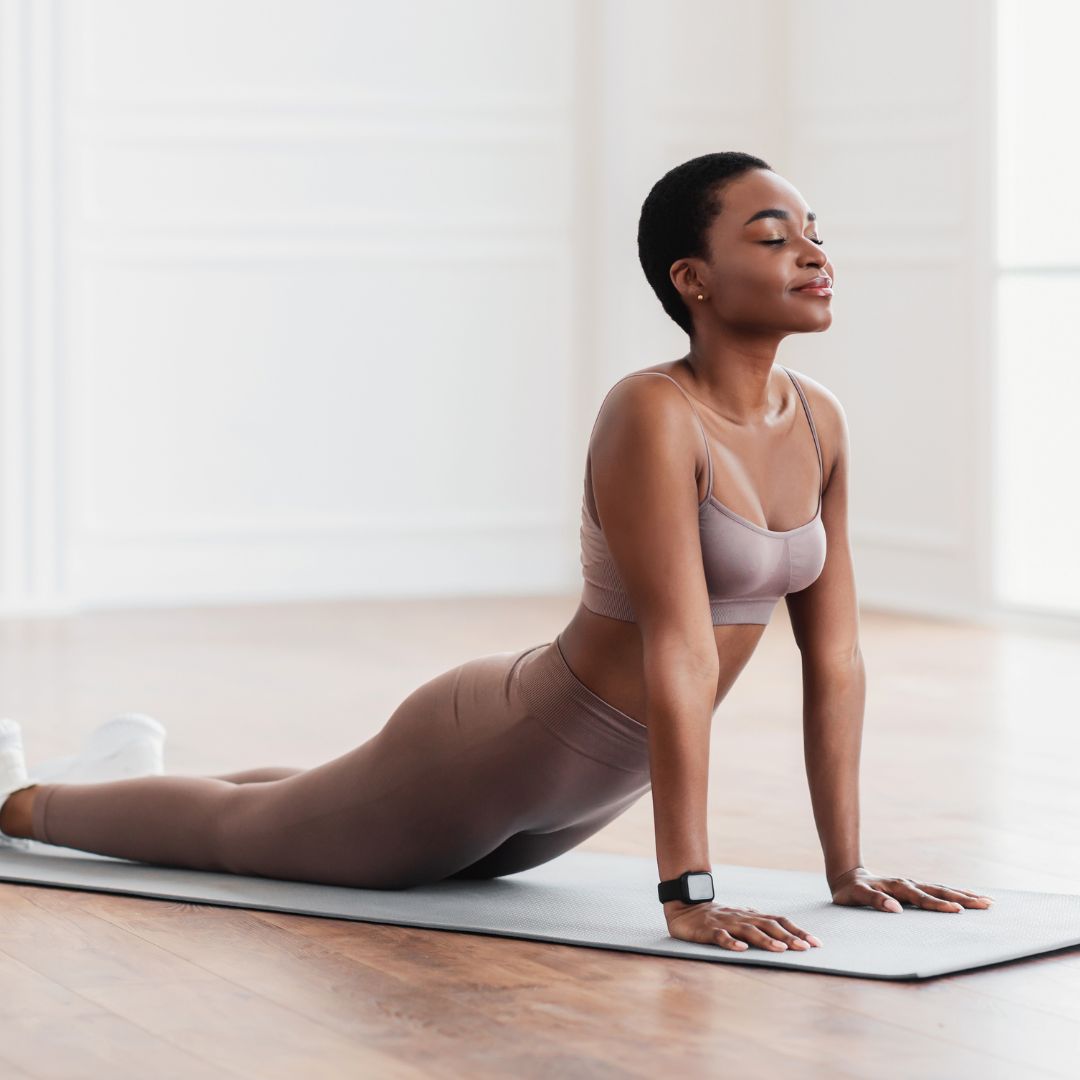 This Pilates ab workout is a combination of all the most effective exercises for a strong body
This Pilates ab workout is a combination of all the most effective exercises for a strong bodyThis one's a good'un.
By Ally Head
-
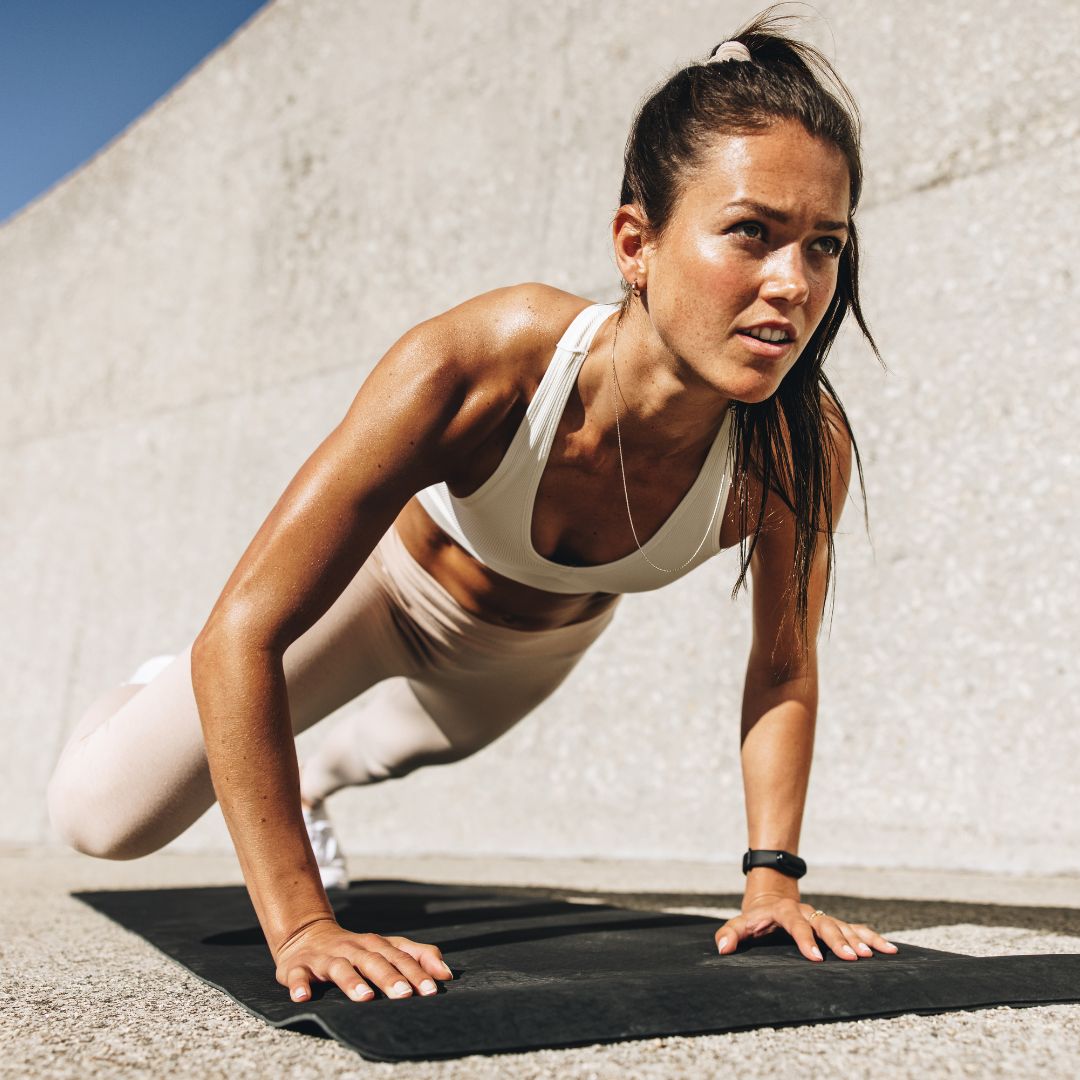 These are the only bodyweight exercises experts reckon are *actually* effective
These are the only bodyweight exercises experts reckon are *actually* effectiveTry from home, the garden, or the gym.
By Ally Head
-
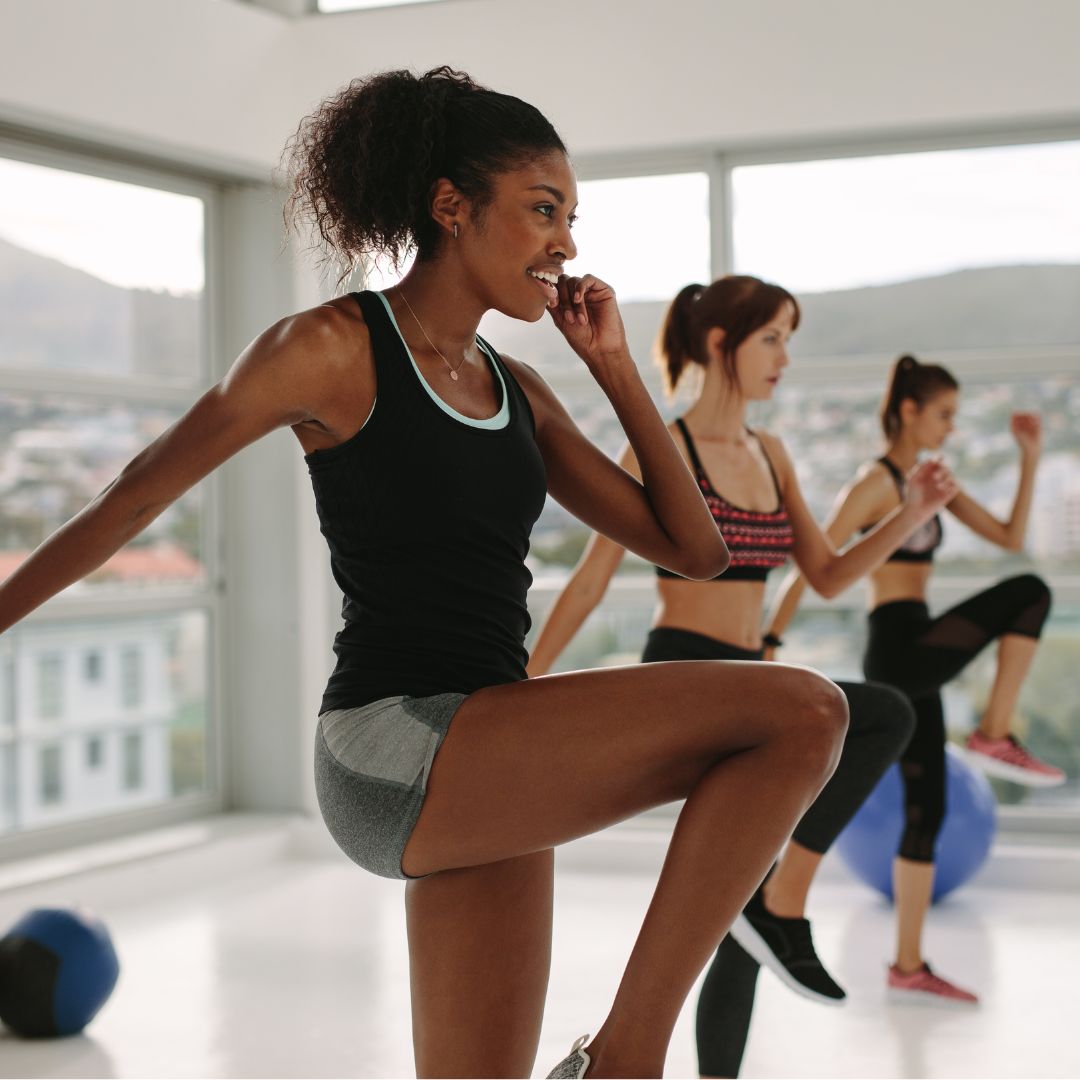 This is the best HIIT workout you can do, according to world-renowned trainer Kayla Itsines
This is the best HIIT workout you can do, according to world-renowned trainer Kayla ItsinesYep, you can do it from home.
By Ally Head
-
 A diabetes drug is going viral for its supposed weight loss benefits—but there’s a seriously dark problem here
A diabetes drug is going viral for its supposed weight loss benefits—but there’s a seriously dark problem hereSearches for weight loss injections have soared by 134%.
By Ally Head
-
 Cold water therapy is loved by Lizzo and Harry Styles - here's how it could boost your energy, fitness and more
Cold water therapy is loved by Lizzo and Harry Styles - here's how it could boost your energy, fitness and moreLearn all about why the Wim Hof method could be worth introducing into your day-to-day.
By Ally Head
-
 Dumbbell exercises are loved by Rihanna and the Kardashians - 10 to try tonight
Dumbbell exercises are loved by Rihanna and the Kardashians - 10 to try tonightOur weight training experts have got you covered.
By Amy Sedghi